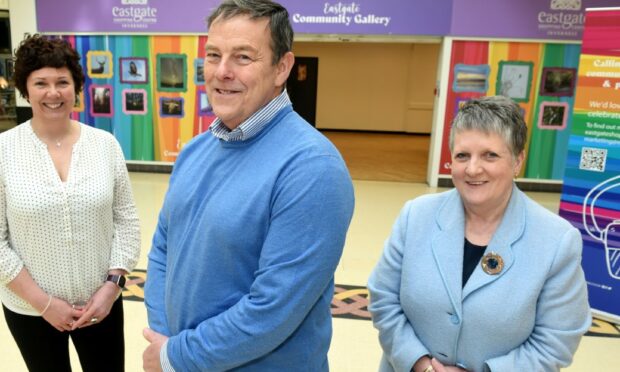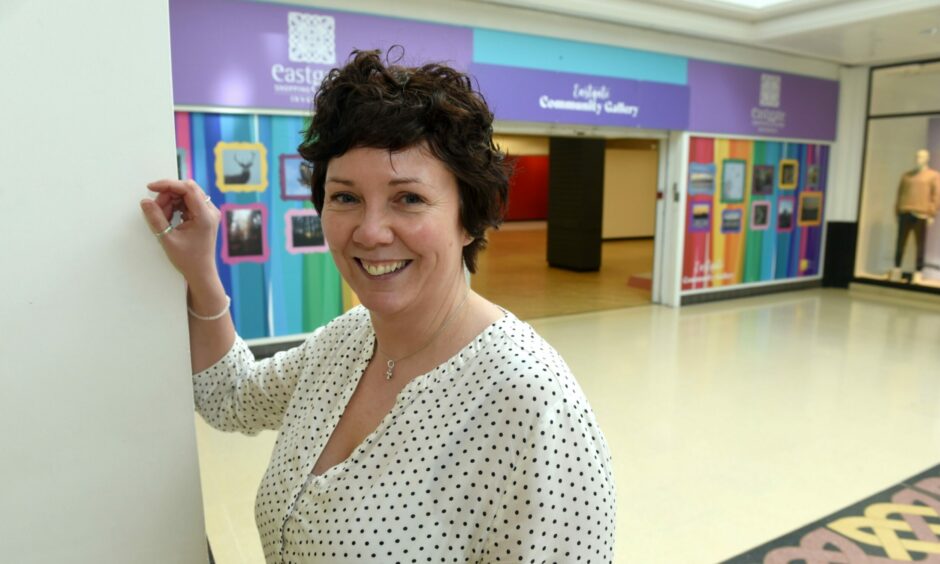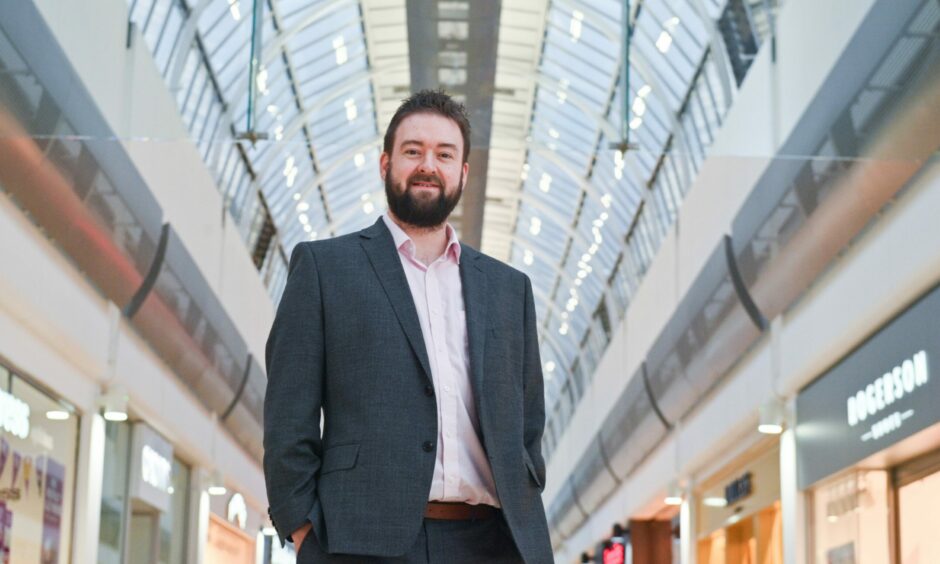The Highlands’ first Discovery College is to open in the Eastgate Centre in Inverness, with plans to extend to other venues in the region.
The two-storey central location in the former Argos premises is a bold move to have mental health support visible and accessible.
The Inverness college will open in March and start its first courses soon afterwards.
It aims to partner with other organisations to start a similar face-to-face venture in Caithness, while also offering online support.
Eventually, the aim is to have a series of similar colleges set up across the Highlands.
First college manager appointed
The project has advanced this week with the appointment of Donna Booth as Discovery College manager.
The Discovery College has also been awarded £88,000 from the Ideas Fund, one of seven bodies sharing £408,000 to improve wellbeing across the region.
Discovery colleges are common in England and in rural Canada. But the Inverness centre is just the fourth in Scotland and the first in the Highlands.
It will use collaborative models to deliver physical and mental wellbeing courses and peer support to people and communities with lived experience of mental health and/or substance use.
The idea is led by mental health charity Centred Scotland which last year said it wanted to open a safe space as part of plans to regenerate Inverness city centre.
A major driver is the Highlands’ consistently high rate of death by suicide.
Public Health Scotland figures for 2017-2021 show the region has the highest suicide rate in Scotland, at 21.5 per 100,000, compared to a national average of 14.1.
Mental health issues have also increased since the pandemic which exacerbated isolation issues.
Donna, who has run a wellbeing practice in Caithness for 15 years, said the college will offer educational and creativity courses to help mental health and recovery.
The wide-ranging prospectus also includes wellbeing and mindfulness support, self-reliance programmes and classes including yoga and tai chi.
Students can be referred, or self-refer online. All the classes will be delivered by a subject expert and a qualified peer support worker with lived experience of mental health issues.
Accessible mental health support is vital
She said college users will look at all aspects of mental health recovery and discovery around themselves and their wellbeing.
Donna said it is vital mental health support is available and open to all, with no barriers to access.
“My vision is to see a college that is genuinely inclusive, accepting and non-judgemental.
“Where people are given an opportunity to connect and to learn, where they can be empowered and where they can grow.
“A place that gives people space to develop and reach their potential when they might never even have suspected they have potential.”
“You can never overstate how important it is to be heard and seen. And to be there with other people, to know you’re not alone in what you’re experiencing.”
Annabel Mowat, Centred deputy chief executive, said having the college in the shopping centre makes a statement.
“There’s something about it being an ordinary part of everyday life. It’s not hidden away.
“When we think about that historical shift from where mental health services were – on the periphery or were hidden – we are now right in the heart of the community, with the community. We are the community.”
Callum Ross, from the Habitus Collective which has helped set up the college, said the Inverness venture is inspirational.
“People want to be part of a community. They don’t want to say they have mental health issues sometimes, they just want to connect with other people because they feel a bit down and disconnected and isolated at the moment.”
‘I want to use my lived experience to help others’
He said the college complements rather than replaces other services.
“Users of the college don’t care who is delivering the services. All they’re thinking is ‘I don’t feel great at the moment, I feel disconnected, I‘m a bit scared.
“’Is this place going to be welcoming? Am I going to feel accepted and is it going to help me on my journey? Can I do it at the same time as going to doctor or seeing a therapist?
“The answer to all those questions is yes.”
Debbi, 48, is one of the college’s peer supporters.
“I’ve struggled with my mental health since I was 19. I applied to become a peer supporter as I want to be able to use my own lived experience to help others.
“When you’re struggling with mental health it’s a very bleak, dark place. You can’t see forward, you can’t see a light or a future.
“I’m now a completely different person and value myself as a person. It’s important for people to see that you can recover, you can improve your quality of life and can even become a peer supporter yourself.”
She believes there is a need for the college and its location is important.
“You hear every other week of crises, of the Kessock Bridge being shut and people not knowing where to turn, with waiting lists years long.
“A lot of people in crisis can’t wait that long. The college gives people a stopping point and can help reduce stigma around mental health.
“A lot of people pass through here and if they don’t need the services themselves they may know someone who is struggling.
“As it’s in such a prime spot, word will get around.”
Eastgate Centre is more than just shopping
Eastgate manager Chris Kershaw says the college’s presence will underline the fact the centre is more than just shopping.
“The role of the centre has to change in a modern environment and having community spaces is key to that.
“Somewhere like this will fit in brilliantly with Inverness and the challenges the Highlands has with mental health.”
Are you interested in all the latest news and updates from Inverness? If so, why not join our new Facebook group here




Conversation